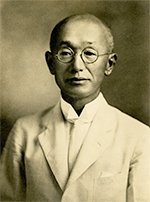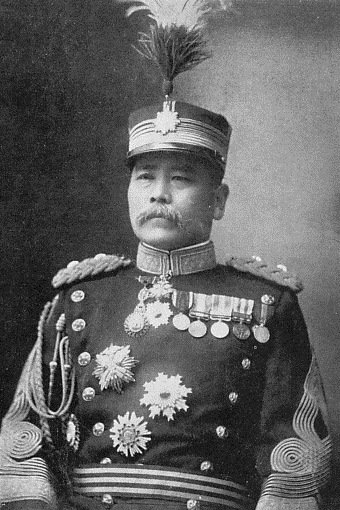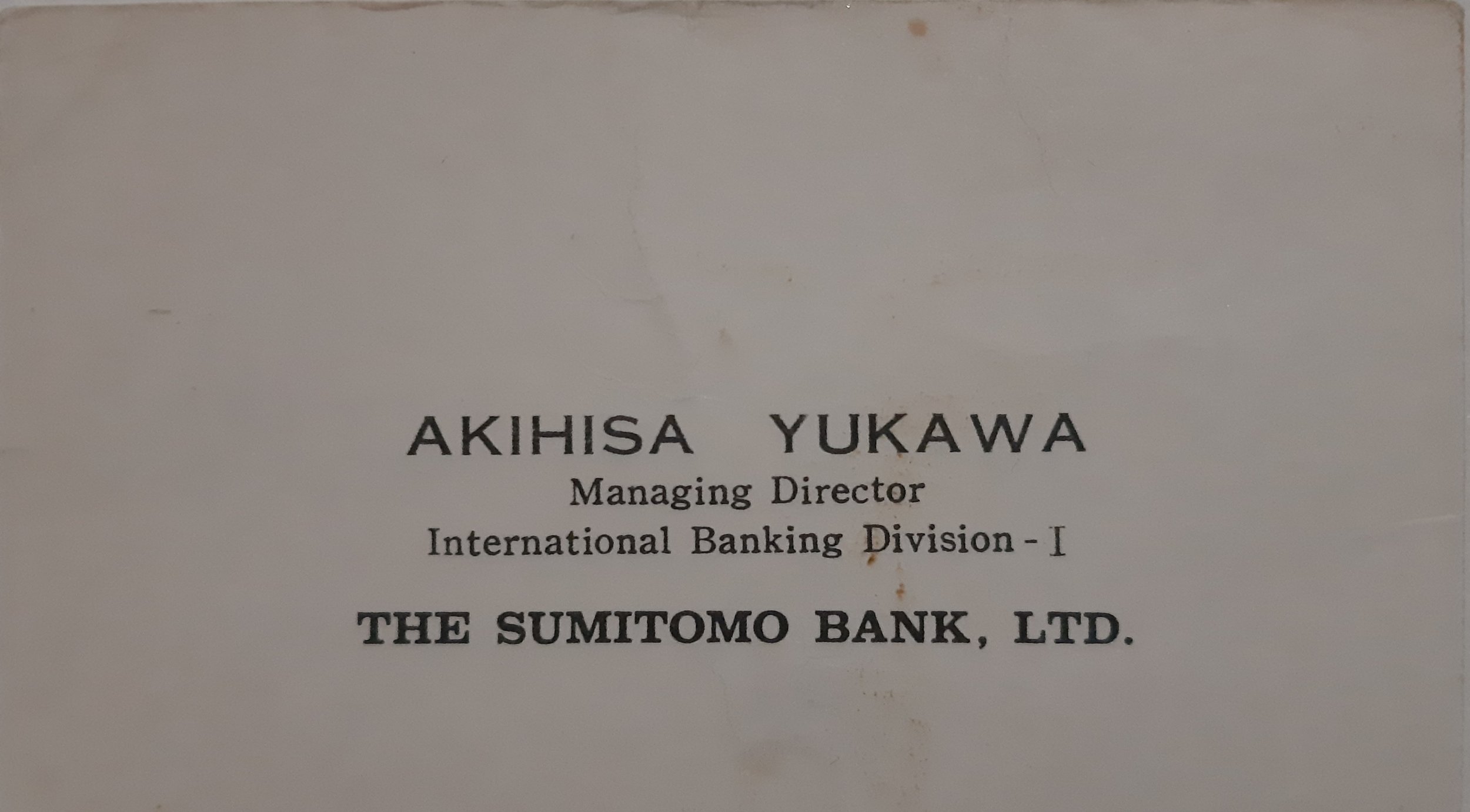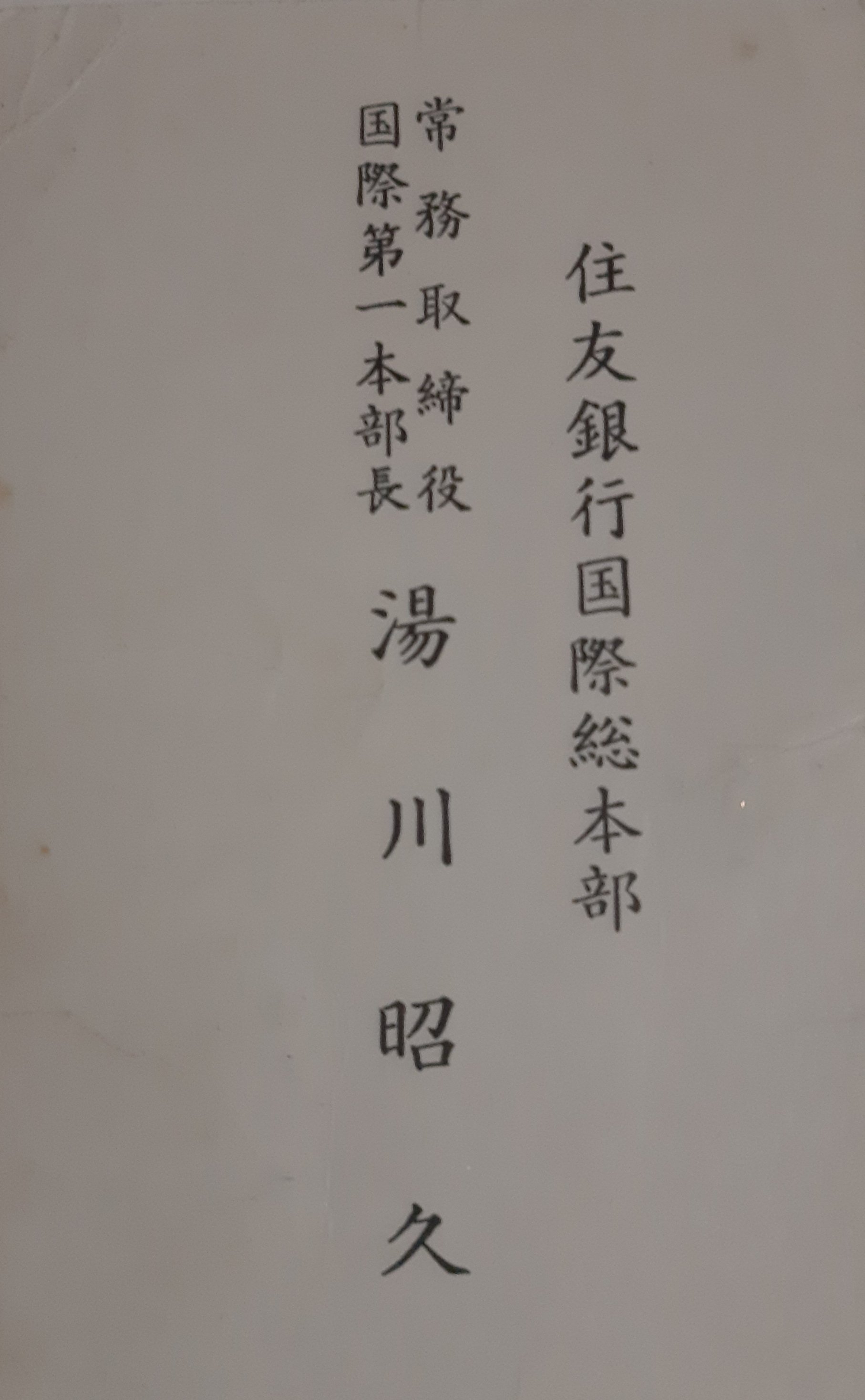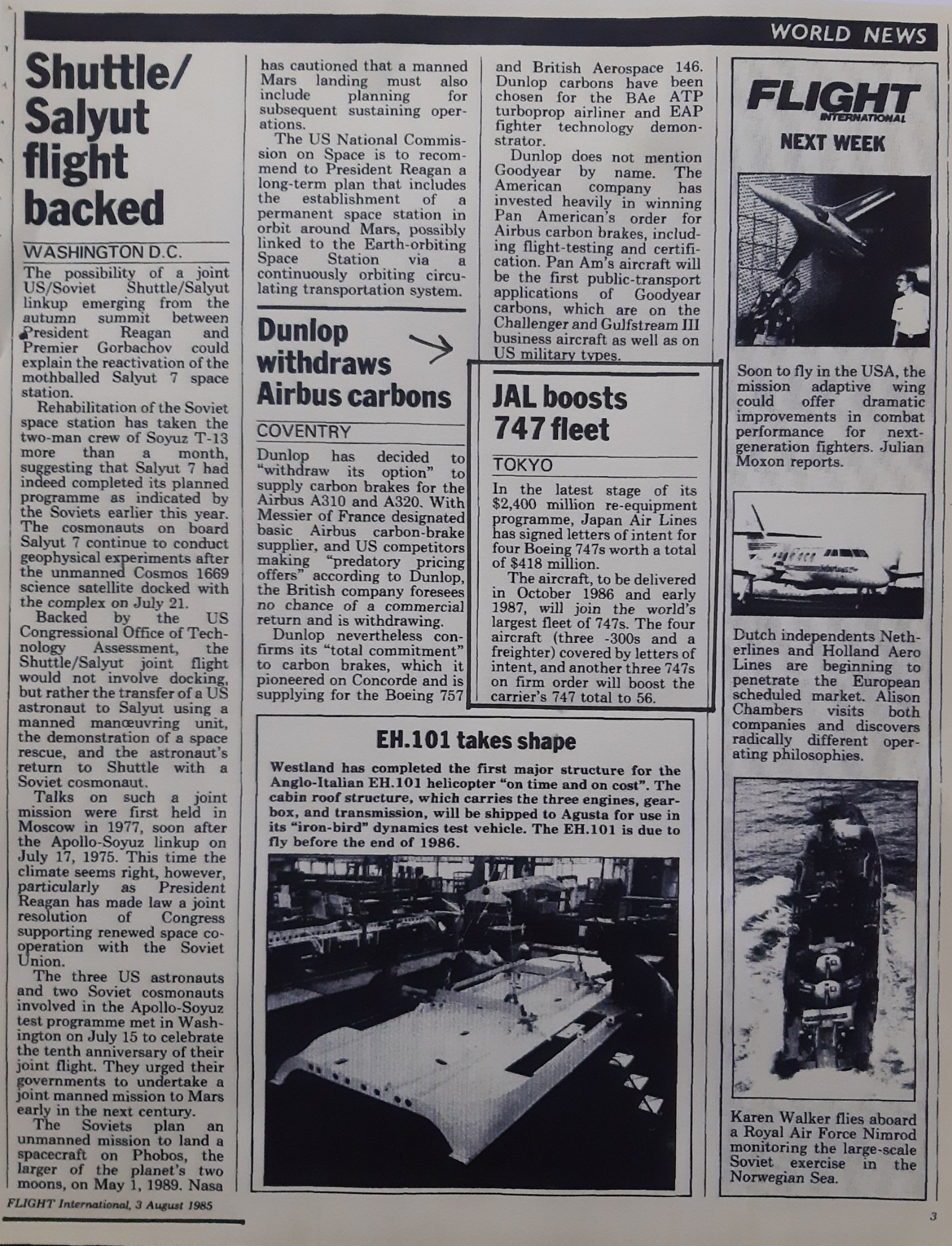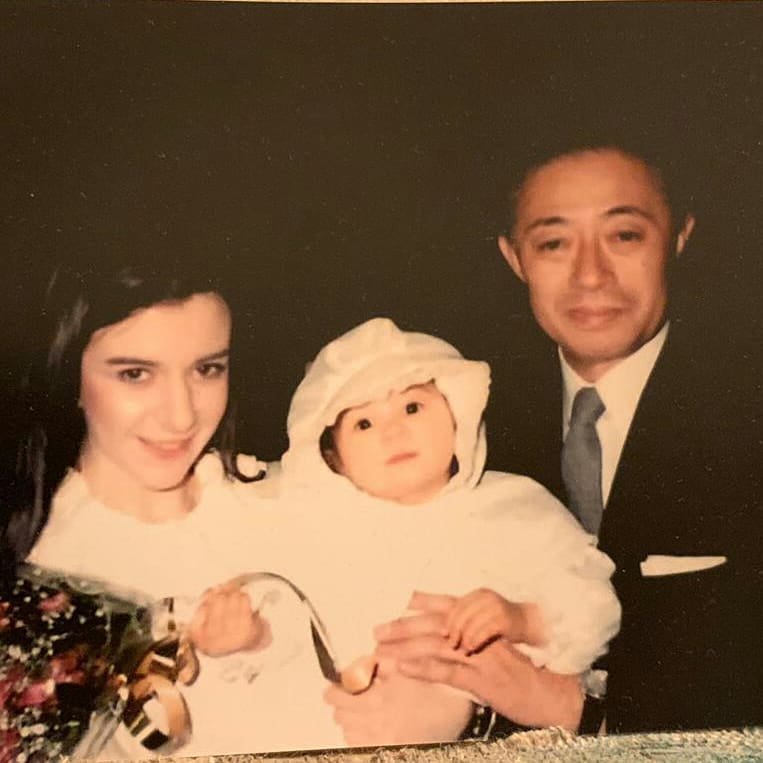Background:
I will share some extracts from my memoirs:
Akihisa Yukawa known as “AKI” was from an aristocratic family which carried Samurai blood of the highest warrior ranking. His ancestral roots came from Shingu, Wakayama. A sacred mystical region believed to be the spiritual heartland of Japan, said to be the land of the Gods where the spirits remain alive. There you can find the most powerful “power spots” in Japan, known to energise and heal regardless of one’s religious belief. According to ancient Japanese history, the Yukawa family’s connections with Wakayama goes back centuries and particularly with the sacred Kamikura-jinja Shrine, where it is said the Gods first came to Earth through this very temple.
Aki’s paternal grandfather Kankichi Yukawa 1868 - 1931, was one of the great leaders in Japanese Business history, a famous industrialist who led the Sumitomo Group to global prominence. In 1911, he invited the best engineers from the UK, Germany and the UK to Japan and developed Sumitomo’s pioneering technology, taking industry to the highest level of that time in Japan. He became Chief Executive of Sumitomo Bank and Chairman of the Osaka Exchange. In 1930 was appointed a Peer by the Emperor of Japan. He held the Court rank of Ju-shi (Prince or Minister) - in his lifetime he donated a new “torii” gate to the revered Kamikura Shrine. A kind Japanese historian gave me copies of records from the Wakayama City Museum which explains Aki’s samurai family history but it’s written in medieval Japanese script and cannot easily be translated, it’s too difficult even for native Japanese to be able to read the ancient Chinese characters seldom seen today.
https://www.sumitomo.gr.jp/english/history/person/yukawa_01/
1911 Sumitomo Electric Wire and Cable Works | Our DNA | id ...
https://global-sei.com/id/2017/10/dna/file001.html
Aki’s maternal grandfather Baron Seiichi Nishimura 1855 - 1909. Lieutenant General of the Imperial Japanese Army, Chief Superintendent of the Tokyo Arsenal. Awarded: Second class Imperial Order of the Rising Sun, Second Class Military Order of the Golden Kite, Grand Officer of de 'l'Ordre Elephant Blanc, Siam. Ju-shi rank. He was also a member of the House of Peers (one of 30). The Japanese House of Peers from 1889-1947 at that time was created by merging the former Court Nobility and the feudal Lord’s system into a new aristocratic class “Kazoku” it was modelled exactly on the British House of Lords but with Japanese titles taken from ancient Chinese nobility.
Aki’s parents Kazuo and Takako were extremely proud of their family’s special connections with the UK. Aki’s father, Kazuo Yukawa was the first Japanese banker to establish an overseas branch of Fuji Bank in London in 1952. There were less than 500 Japanese businessmen working in London at that time, all selected for their special qualities at sensitive times after the second world war. Kazuo and Takako lived in Mount Street, Mayfair. Aki’s younger brother Kazuyuki, attended the same school as crown prince Akihito, it was the “Gakushuin” or Peers School, established to educate the children of Japan’s nobility. Prince Akihito attended Queen Elizabeth’s Coronation in 1953, as representative of Japan, it was his first trip overseas - Kazuo and Takako met him in London again as they also attended the Coronation and were invited to Buckingham Palace. As we know, prince Akihito became Emperor of Japan in 1989 and abdicated in 2019.
Aki’s parents were not typically Japanese and they were most at home in British culture. It was not surprising how happy Aki was to be working in the UK for his second posting in 1976, this time in the position as Manager of the London branch of Sumitomo bank.
Aki became executive director of Sumitomo Bank in 1979, he was head of the international department and spoke impeccable English. Known for his sound judgement and his belief that strong relationships with non-Japanese businesses in each country was key to internationalisation of banking. He was admired as a man of great integrity and empathy, particularly concerning discrimination issues and the struggles of single parents in Japan. He hoped and believed that in time Japan would embrace the changes that were necessary. In London he was also famously known for being a brilliant pianist, talented enough to have become a concert pianist – he actually kept an upright piano in his office in Queen Victoria Street EC4. Aki was naturally gifted, he adored music and was a passionate art lover. In his youth his parents stopped his piano tuition because they feared he was too talented and might become a musician! Being the eldest son from an elite Japanese family his traditional background had prevented him from following his dream to become a concert pianist, instead he became a banker of one of the most powerful banks in Japan. While in London he was appointed managing director of Sumitomo bank. The Nikkei Business Daily reported that Akihisa Yukawa was the key person in securing the lead bank role in the syndicate loan for the UK Electricity Board in 1978.
The chance meeting (extract from memoirs)
In November 1978, a chance encounter brought our different paths together for the very first time. At the time of this life changing meeting, I was a serious-minded classical ballet dancer and artist (21) dedicated to training with absolutely no thought in the world of falling in love - that was until I met Aki (49)…
We met in a small group in a Japanese restaurant in Piccadilly, introduced by a Japanese friend of mine. I found myself sitting directly opposite a distinguished, incredibly handsome middle aged Japanese man, powerfully charismatic - he spoke impeccable English with a British accent - I was completely mesmerised, unable to look away. He smiled as his eyes met mine and introduced himself. but I could not understand why I was almost unable to speak and felt so overwhelmed – He was the most good-looking man I had ever seen, I told myself. As he talked and laughed with his younger colleagues, like a magnet I was drawn to study his eyes again trying to absorb every detail about him. Suddenly he looked back at me again, I blushed so much I felt almost dizzy - I was relieved to hear the live music playing louder, foolishly thinking I could somehow hide my peculiar embarrassment but at the same time I found myself hoping he might speak to me... A jazz pianist started to play in the background and incredibly Aki looked back at me from time to time for a moment or two. I was astonished each time our eyes met, the energy was so powerful I was stunned, all I could do was smile back. After a while he leaned forward across the table and spoke only to me: “Why don’t you call me Aki, can you?” His eyes looked so kind and thoughtful, but I could barely speak, he quietly tapped his glass with mine. I laughed, now in full grip of his stare I was seriously overwhelmed. Almost at the same moment we noticed the change of music being played on the dance floor.
“That’s very beautiful music, don’t you think so?” he said softly in a way the others could not hear. “Yes... I love it too.” I was too spellbound to say more, he fussed over my drink I sensed in an effort, to put me at ease. The music playing was the haunting piece called “Cavatina” a very beautiful evocative guitar piece originally played by John Williams used for the soundtrack of the movie “The Deer Hunter” in 1978. The music ended all too quickly and Aki said it was time to leave and his colleagues jumped up to follow him to the exit. I was still dizzy, but I somehow got my feet to the ground as I watched him leave. Although we had not talked properly, I had experienced an undeniably powerful connection with this extraordinary man. I had no way of knowing if I would ever see Aki again, but I could not stop smiling just thinking about him. Even IF I never saw him again, I knew that I would never forget the magnitude of his presence.
What happened next...
In the next chapters I explain the details of what happened next and how Aki found a way to find me again... I had no idea that a once in a lifetime love story had already begun and my world was about to transform. I eventually discovered that Aki was just as nervous - he felt the same as I did which made what we were experiencing more powerful than words can say. On the surface it looked like we came from different worlds but the energy of our chemistry was phenomenal. The more we learnt about each other the more our connection grew to reach new heights.
In the early days Aki talked at length about the importance of experiencing mental love before all other things – because carnal desire was too incredibly easy, he said. He did not mean he wanted a relationship to be platonic, he simply wanted me to recognise the true meaning of pure love and that was making me fall in love with him even more.
During the next incredible three years, our small flat in No 60 Upper Berkeley Street, W1, became our heavenly sanctuary - it seemed the most natural thing in the world to have our first child. In 1981, after almost five years in London Aki was transferred by head office back to Japan. I gave birth to our first daughter in London, and we moved to Japan to set up home in Kobe, Osaka.
Happiness in Japan
After one year we moved from Kobe to Tokyo in Spring 1982. Aki was transferred to the Tokyo office of Sumitomo Bank, as senior director. We were so lucky that Kazuo and Takako embraced our happiness and welcomed me into their family. They supported the reason why Aki had to wait quietly to marry me. Takako had a big heart, she thanked me for making her son happy again, I had the greatest love and respect for them, but their acceptance of our relationship was rare. In 1980’s Japan sadly many foreign wives suffered rejection and were discriminated against by Japanese-laws long after marriage. Their love and support really was a pure blessing.
Aki was always so kind and considerate, he never expected that I would find it easy to adjust to a different Japanese lifestyle - but for me it was a natural transition, I loved it. My Japanese cultural studies included, Shodo - Japanese calligraphy and sumi-e watercolour painting. Through Aki’s eyes, I had fallen in love with his culture too. He often told me that I had become “more Japanese than Japanese”. Our life together grew in harmony and our love deepened. We knew how lucky we were, we were blessed to share the greatest happiness that life could offer. We felt so unbelievably happy, I couldn’t help thinking could anything ever threaten to spoil such incredible contentment?
Early 1984, Aki faced an important decision. Unexpectedly he was offered the position as Governor of the World Bank in Washington. He thought long and hard and talked it over with his father Kazuo. Those days it was a Japanese tradition to follow “lifetime employment” with the same company. It was considered disloyal and negative to change jobs completely. But more importantly, it was Aki’s dream to return to the UK and set up a new business where he could enjoy the freedom of British society which he craved for. He therefore declined the position and accepted a new role to build the aircraft leasing strengths of Sumitomo Bank. In April 1984. Aki was reassigned as Advisor to Sumitomo’s Leasing Financial Group. The same year was made Executive Vice President and in addition to his existing responsibilities he was appointed Chairman of the newly established subsidiary in New York. The aim of which was to develop larger international leasing deals in collaboration with Sumitomo Bank across America. It was pioneering days in Japan at that time for aviation leasing, a huge business involving several billion yen per aircraft, a significant benefit to the investors.
1985
In late December 1984, Aki suddenly said that he should hurry to make a Statutory Declaration of Paternity for our daughter Cassie but under English law. He was worried it was long overdue, so we traveled on Christmas day for an urgent brief trip back to the UK. Aki took the Oath 3 January 1985 in London. He wished to declare Cassie as his daughter in the UK because he was determined to protect Cassie from discrimination and it would pave the way for him to declare her under Japanese law later – but only at the time when she would not be discriminated against in Japan.
It was many years later that I discovered that Aki’s action had paved the way for me to fight on his behalf and eventually win the breakthrough family recognition in Japan he had wished for - in a way that changed history.
At that time Japanese illegitimate children were greatly discriminated against even IF legally recognised by the father under Japanese law. The child’s name would be entered on the koseki family registration in a different place with a black mark - a stigma which would follow negatively throughout every aspect of Japanese life. The ALL important koseki record is equivalent to a birth certificate but in Japan it includes the parents and all siblings on one single document, for each identity.
This was a key issue that Aki warned me needed to change to keep up with the outside world including corporate mentality. I didn’t really understand these challenges at that time because he had always protected us. Aki did not agree with Sumitomo's institutional mentality and he had huge empathy for Japanese single mothers and the prejudice they faced. He was determined to protect us from any form of discrimination and fight for our future as was our right he said. We returned to Japan early January 1985, and discovered we were expecting our second child. We had so much to look forward to!
“You never know how much I love you”
Aki wrote to Susanne..
In April 1985, Aki took a bold step to meet with senior immigration officials. He informed them that we were “his family”, his dependents, I was pregnant with his second child - and he needed us - his family to stay with him. He explained the details of why we had to wait to get married and his situation was respectfully understood - this was because Aki held a very high company position and seniority in Japan is everything. As a result, Aki’s wishes were respected and my culture visa was renewed yet again far beyond the usual limits. But Aki had another plan too... he said IF he needed more time to be free to marry me, he would ask his parents to adopt me. Adult adoption in Japan is still popular to this day for all sorts of good reasons. The most common age for adult adoption is 25, at the time he planned it I was 27. I was moved, if needed I would accept of course. We had everything in the world to look forward to…
Aki continued to build Sumitomo’s aviation leasing business strengths. He successfully led the syndicate which financed Japan Airline’s biggest order of Boeing aircraft worth a total of $480 million ( a huge amount in 1985) It was a record aircraft order at that time in Japan, Aki had every reason to celebrate his business success. On 3 August 1985, Flight International announced:
“JAL boosts 747 fleet TOKYO - in the latest stage of its $2,400 million re-equipment programe, Japan Airlines has signed letters of intent for four Boeing 747s worth a total of $418 million. The aircraft, to be delivered in October 1986 and early 1987, will join the world’s largest fleet of 747s. The four aircraft (three - 300s and a freighter) covered by letters of intent, and another three 747s on firm order will boost the carrier’s 747 total to 56.”
Flight International; 3 August 1985

